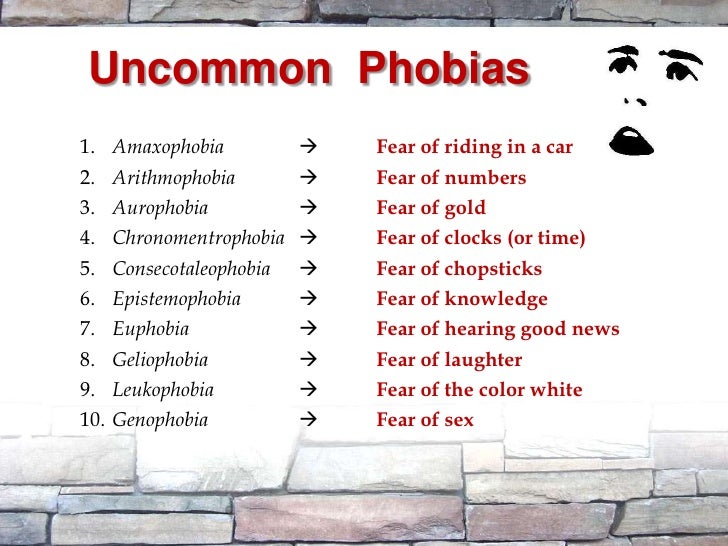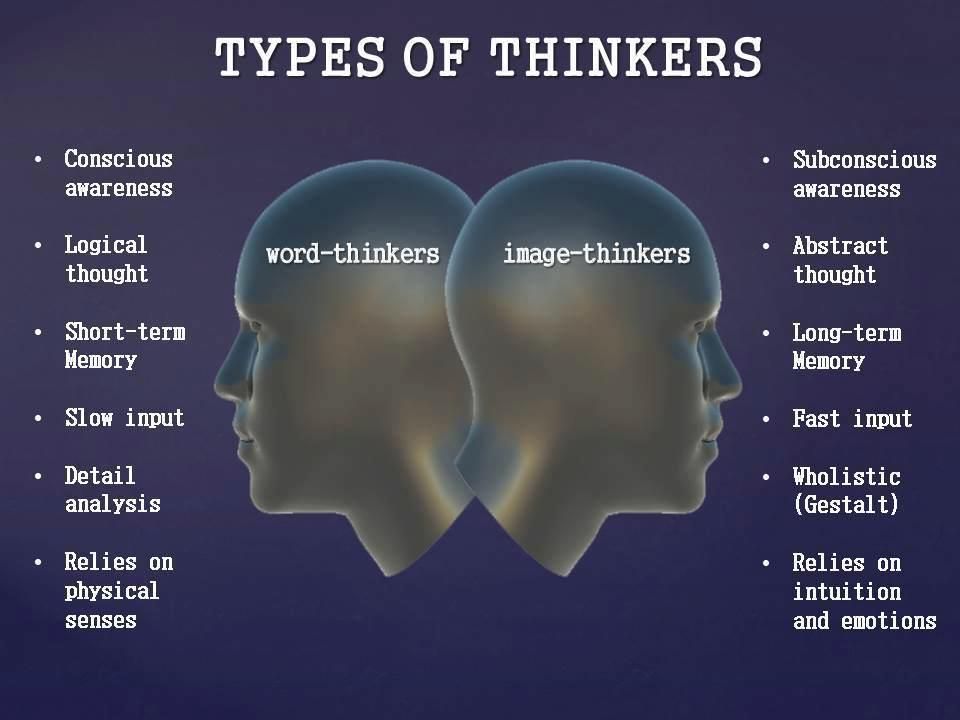Am i married to a narcissist quiz
Am I Married to a Narcissist?
Narcissists as we all know them, are very confident and perhaps, too confident about themselves. The problem is when you befriend one, or worse, when you marry one, their behavior or beliefs can become toxic to the relationship or your emotional health. So, do you think you are married to a narcissist? Take our ‘Am I married to a narcissist quiz’ and find out.
Questions Excerpt
1. Do you still love your partner? why?
A. Yes, because he/she is an amazing person
B. Yes, because he/she is all you've got
C. No, because you are fed up with him/her
D. No, because you feel erased around him/her
2. Do you think your relationship has a chance despite his/her behavior?
A. Yes
B. Yes, but he/she has to change
C. No
D. No, not with this attitude
3. Does you partner think he/she is the center of the world?
A. Yes, and it's sickening
B. Yes, sometimes
C. Only because people make him/her feel this way
D. No, not at all
4. Does your partner flirt with other people in front of you?
A. Yes, all the time
B. He/she flirts but not in front of you
C. Yes, sometimes, but it's just to get back at you
D. No, he/she would never do this
5. Do you have doubts about your partner's feelings for you? Why?
A. Yes, because they are too focused on themself
B. Yes, because they never tell you how much they love you
C. No, because they prove they care
D. No, because they are an amazing person
6. Does your partner try to isolate you from friends and family?
A. Yes
B. Sometimes
C. Never
D. A few times
7. Do you feel dominated by your partner?
A. Yes Always
B. Sometimes
C. Never
D. Yes
8. Does your partner lack empathy?
A. Yes Always
B. Sometimes
C. Never
D. Absolutely
9. Has your partner ever been physically abusive?
A. Yes Always
B. No
C. Never
Never
D. I am scared they might be
10. Is their attitude towards everything - “my way or the highway?”
A. Always
B. No
C. Never
D. Yes
11. What do you wish your partner could do less?
A. Look at him/herself in the mirror
B. Praise him/herself too much
C. Talk about him/herself all the time
D. He/she is perfect
12. Does your partner know he/she is a narcissist?
A. Yes
B. No, but you can't wait to break it down to him/her
C. Yes, but he/she is in denial
D. No, you doubt it
13. Do you feel like your partner respects you?
A. Yes, of course
B. You have no doubts about it
C. No, not at all
D. No, he/she is just a horrible person
14. Do you feel like you connect well with your partner?
A. Yes, of course
B. Sometimes
C. Only when you have the energy to deal with them
D. No, not at all
15. What do you wish your partner could do more?
A. Tell you how much he/she cares about you
Tell you how much he/she cares about you
B. Talk about others in a positive way
C. Water the plants
D. Workout
Is My Partner A Narcissist?
Narcissism is not just thinking you look great and are smart; it is actually having a narcissistic personality disorder. Symptoms of this disorder include a grandiose sense of self-importance, dreaming of unlimited success and beauty, having a sense of entitlement, and lacking empathy, just to start with. If you recognize these signs in your partner, take this ‘Is my partner a narcissist’ quiz to find out if you’re living with a narcissist!
Questions Excerpt
1. Does your partner ever offer something to other people?
A. Yes, but only to expect more in exchange
B. Yes, but I don’t think it’s out of generosity
C. Sometimes they do, sometimes they don’t
D. Yes, out of pure generosity
2. Does your partner pressure you to do things their way?
A. Yes, always, and they get angry if I don't do as required
B. Sometimes
Sometimes
C. Rarely
D. Never
3. Does your partner break rules?
A. Yes, and they take pride in it
B. Yes, sometimes
C. Not really
D. Never
4. How does your partner treat you when you don’t give them what they want?
A. They get angry and use ridicule and personal attacks
B. They give me the cold shoulder and withhold affection
C. They are upset but get over it
D. They accept it
5. What is your partner’s opinion about their achievements?
A. They exaggerate about it
B. They like to boast, but they are right
C. They talk about achievements without boasting
D. They are very modest about it
6. When you speak to them, they…
A. Shift the conversation to themselves
B. Shift the conversation to other topics
C. Sometimes tell a related story about them
D. Listen closely and tell me their opinion, if asked
7. Are they argumentative?
A. Yes, they argue about anything and everything
B. Yes, mostly
Yes, mostly
C. Yes, they do argue about some things
D. No, they always listen to other people’s opinions and ideas
8. How much attention do they need from you?
A. All of it
B. Most of it
C. They can need attention sometimes
D. They do not need attention, but like to be reassured
9. Do they consider other people’s desires and feelings?
A. No
B. Seldom
C. Sometimes
D. Always
10. Does your partner accept contrary viewpoints?
A. No, and they get mad when contradicted
B. No, and they ignore them
C. Yes, whether they like it or not
D. Yes, they embrace them without any problem
11. Do they think they are special?
A. Yes, to the point where nobody else matters
B. Yes, they consider themselves pretty special
C. Yes, sometimes they think they are more important than anyone else
D. Yes, but in a positive way
12. Does your partner consider their needs the most important?
A.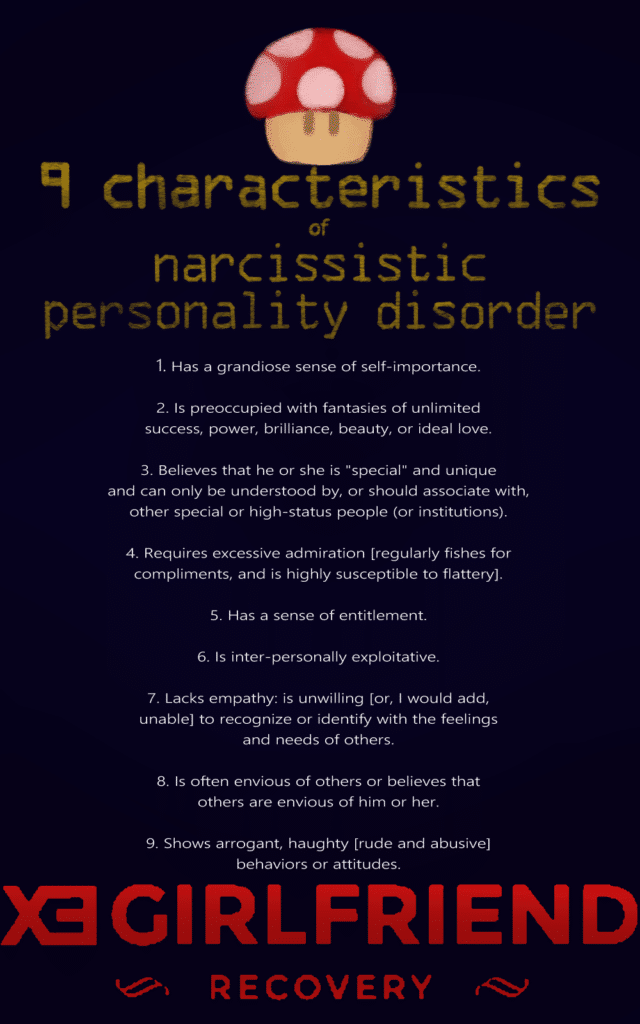 All the time, they would even ignore our children's needs
All the time, they would even ignore our children's needs
B. I am afraid so
C. Sometimes
D. Never
13. Does your partner envy other people?
A. Yes, a lot
B. Yes, sometimes
C. Occasionally
D. Never
14. Does your partner reveal private information that most people would prefer to withhold?
A. Yes, and it's actually embarrassing
B. They follow this temptation sometimes
C. Rarely
D. Never
15. How does your partner react to criticism?
A. They get very angry and start defending themselves
B. They simply ignore it
C. They are not happy about it but listen to critics
D. They listen to critics and try to improve themselves
how to understand that you are in a relationship with a narcissist? - Knife
Checklist: how to understand that you are in a relationship with a narcissist? - Knife Family psychologist Caryl McBride has been helping people who are in close relationships with narcissistic personalities for over 30 years. Based on her professional experience, McBride came up with 50 self-test questions. The more often you answer "yes", the more likely it is that your partner or partner is prone to narcissism. And although a mentally healthy person may have these traits, their excess may indicate a narcissistic personality disorder. The checklist is suitable for men and women, hetero- and homosexual relationships.
Based on her professional experience, McBride came up with 50 self-test questions. The more often you answer "yes", the more likely it is that your partner or partner is prone to narcissism. And although a mentally healthy person may have these traits, their excess may indicate a narcissistic personality disorder. The checklist is suitable for men and women, hetero- and homosexual relationships.
- When something goes wrong, does your partner blame everyone but themselves?
- Does your partner make you responsible for his bad deeds? (e.g. "You made me so angry that I couldn't help it")
- Is your partner sure that he is always right?
- Is it difficult for your partner to catch your feelings or the feelings of your children?
- Is it more important for your partner to predict how your behavior will affect him than to understand and accept you?
- Does your partner not admit his feelings or deny them?
- Does your partner resent you and others?
- Should everything revolve around his or her time, money, problems and needs?
- Does your partner listen to you and your opinion without interest?
- Does your partner constantly tell you what to do?
- Does your partner make you feel "not good or good enough"? Have you already believed it yourself?
- Does your partner never ask you how your day was, how you feel?
- Does your partner constantly repeat how unique he is and how worthless you are?
- Is your partner lying?
- Is your partner manipulating?
- When you are in a company, does your partner retell events every time in a new way?
- When your partner talks about his or your mutual children, does he focus on what they do, and not what they are?
- Are children uncomfortable in his or her company? They become attached, but do not want to spend much time with this person?
- Children do not share their innermost things with him or her?
- Does your partner trust anyone?
- Are the children trying to win the love and approval of this person?
- Does this person try to spend as little time as possible with children?
- If your partner is not interested in a child's activity, is he likely to avoid related activities? (for example, will not come to a tournament in which your son participates)
- Does your partner force children to do things he loves and appreciates and discourage them from other hobbies?
- Did people around you tell you that there is something wrong with this person?
- Does your partner use other people?
- Is it important for your partner to have power and control everything?
- Does your partner care about the image and impression he makes?
- It seems that your partner does not have a value system, does not have a clear idea of his good and bad deeds?
- Is your partner still trying to use you after the breakup? Does this person never seem to calm down?
- When you talk about your problems with your partner, does he try to change the subject and talk about his own?
- When you describe feelings, does he interrupt with stories about his experiences?
- Is your partner jealous?
- Does this person have a lack of empathy?
- Does your partner agree only with what is beneficial to him?
- Do you feel a constant lack of emotional closeness with this person?
- Do you constantly wonder if he loves you?
- Does your partner only treat you well in public?
- When something bad happens (accident, illness, family conflict), does your partner think of himself first and not of you?
- Is this person too interested in the opinions of others?
- Do you feel taken advantage of in relationships?
- Do you feel responsible if your partner does not eat properly or suddenly falls ill?
- Do you feel that your partner does not accept you?
- Does your partner often criticize you and others?
- Do you feel like your partner doesn't know the real you and doesn't want to know?
- Does this person act like he or she is the navel of the earth?
- Is your partner acting fake?
- Does this person either look down on others or feel like a nonentity?
- Is your partner trying to compete with you in some way?
- Does this person need everything to always be done according to his rules?
Read also: Is it true that we live in an era of narcissism?
Manipulate me if you can: how to recognize a narcissist
see also
Intimidate, disappear, block - how to protect yourself from a stalker
They are smart, sweet and charming. You fall into the net of their charm after a few minutes of communicating with them. They always create only dependent relationships. Where are they from - narcissists? What do they need? How not to get hooked, how to figure them out in your environment and what to do so that you are not driven to suicide - Tatiana Skritskaya, a family psychologist at the Familia Center, answers these and other questions.
You fall into the net of their charm after a few minutes of communicating with them. They always create only dependent relationships. Where are they from - narcissists? What do they need? How not to get hooked, how to figure them out in your environment and what to do so that you are not driven to suicide - Tatiana Skritskaya, a family psychologist at the Familia Center, answers these and other questions.
- Most of the serious research on narcissists and manipulators is translations of foreign scientists. The problem is becoming more and more urgent for Russian psychologists. In their practice, psychologists and psychotherapists are increasingly faced with victims of people with narcissistic personality disorder, returning many of them literally from the next world. And judging by the scale of the problem, there is no doubt that it will only get worse in the future.
- Foreign experts identify people with a certain type of character, with the characteristics of the so-called "dark triad". It includes narcissism, Machiavellianism and emotional coldness.
It includes narcissism, Machiavellianism and emotional coldness.
Narcissism is the need to be the center of attention and to be admired. Such people maintain their grandiosity through the impression they make on others.
Machiavellianism is a lust for power, deceit and manipulation of other people. They are also distinguished by emotional coldness and are not able to experience warm feelings for others and even for close people.
People with high intelligence who have the qualities of the dark triad tend to be very successful. One example of such a person was Steve Jobs. He was unbearable for the environment, difficult to communicate with partners. At the same time, having a very difficult character, he was incredibly efficient and charismatic.
The modern world actively encourages the effectiveness, selfishness and financial solvency of a person. It is by these components that many people around us evaluate us.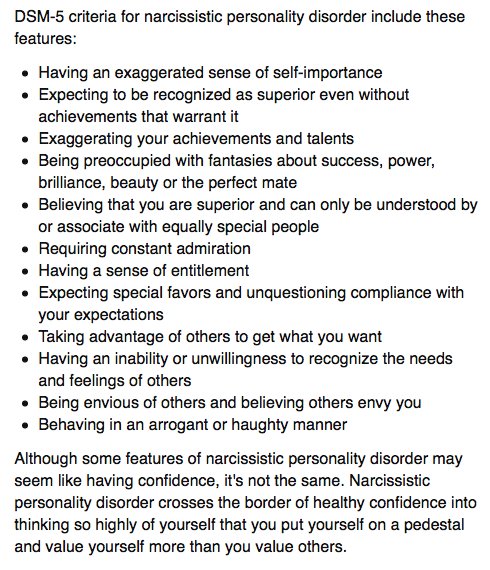 It is important to be more successful, earn more, get married earlier (more successfully) and so on ... The main thing is to have something to brag to your girlfriends.
It is important to be more successful, earn more, get married earlier (more successfully) and so on ... The main thing is to have something to brag to your girlfriends.
Accordingly, in recent decades, there are more and more such tough, selfish and unscrupulous loners. And psychologists are increasingly turning to people who have received psychological trauma as a result of communicating with them.
In the photo: family psychologist Tatyana Skritskaya and psychologist Igor Dobryakov. Photo: samopoznanie.ru
- Narcissist and manipulator - is it always an equals sign?
- Not. The degree of expression of these qualities may be different in different people. Narcissism can be healthy as an indicator of good self-esteem and an incentive for self-realization and development.
Malignant daffodils are different. They are very sweet, smart, charming, it's nice to be around them, we feel a surge of strength, interest in our person, but after parting, we are covered with emotional and physical exhaustion, fatigue. And sometimes there is a vague feeling that we were used.
And sometimes there is a vague feeling that we were used.
Narcissists are sometimes referred to as "emotional vampires". Such people have no esoteric abilities. When communicating with ordinary people, we always get something from a partner: positive emotions, support, advice.
After communicating with a narcissist, many describe their state as devastation, exhaustion, a feeling that they have been used, that is, spending our time and energy, we do not receive anything in return.
The narcissist is not interested in people who understand his nature and who are able to resist being drawn into dependent relationships, because through such people he will not be able to receive confirmation of his grandiosity, they are almost impossible to use.
— Is this a conscious behavior of a person, or is it still driven by some kind of his nature? Perhaps the reason for this behavior lies elsewhere?
- Differently.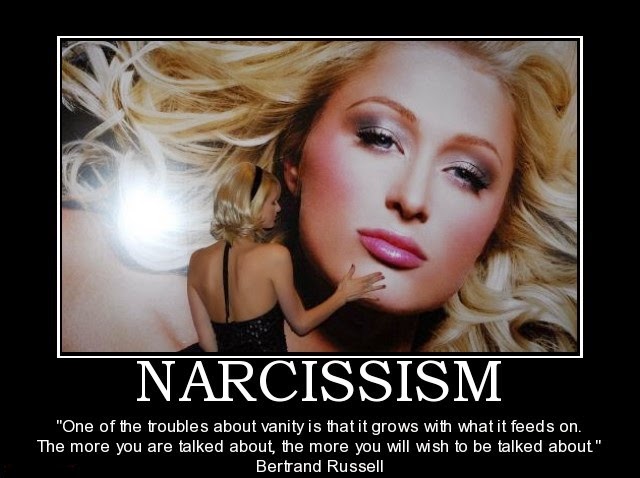 The pronounced manifestation of the characteristics of the “dark triad” in a person is considered to be an innate feature. Such people have a certain value system in which it is permissible to use others.
The pronounced manifestation of the characteristics of the “dark triad” in a person is considered to be an innate feature. Such people have a certain value system in which it is permissible to use others.
The world and people are perceived as objects to satisfy their own needs. They easily identify potential victims, who are used and easily changed to new ones if necessary.
We can say that the highly competitive modern world contributes to the emergence of people with such character traits. Some psychologists say that this is the next stage of human evolution.
Today it is not necessary for people to live in groups to survive. The environment does not imply that we need someone for physical survival. Therefore, families and traditional relationships between people are gradually being transformed.
Money can replace interaction with other people and maintain a high quality of life. A certain amount of money implies that we can live as we please, without relying on loved ones and without needing them.
Photo: Mikhail Perikov, nsknews.info
- If a person gets into a dependent relationship with a narcissist, can he get out of it without loss?
- Much that happens in relations with others, we can track later - retrospectively. In the process of communication, when we are emotionally involved, we cannot observe ourselves from the outside and do not recognize that this is manipulation, and we are interesting for a partner only from the point of view of satisfying his needs. But then comes the realization that something was wrong.
For example, for my part, I did the right things, but I did not get what I expected from the communication, although my contribution was sufficient. This is the reaction that our body gives out to the manipulation that was on the part of a person with a pathological character. Such people know that there is a conscience, but its criteria do not apply to themselves.
Sometimes there are very vivid examples of the relationship of a person with the characteristics of the "dark triad" and his victim.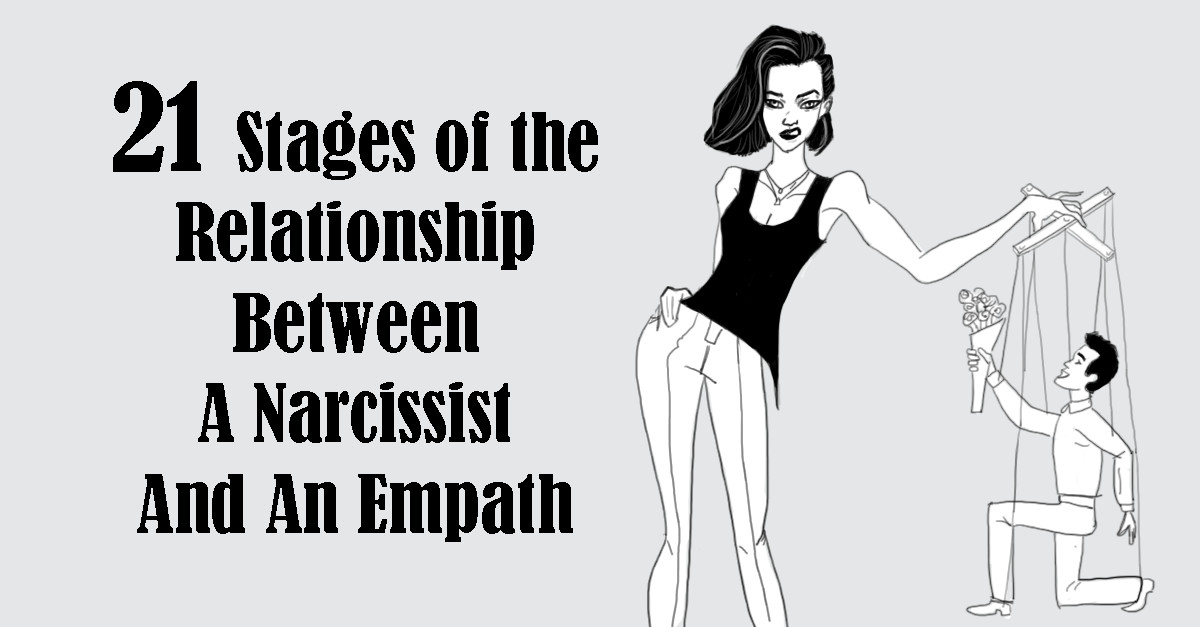 For example, one of my clients asked: “How can I understand when my husband says that we are different stages of evolution? He says you can be used, I know how to do it, and I do it.
For example, one of my clients asked: “How can I understand when my husband says that we are different stages of evolution? He says you can be used, I know how to do it, and I do it.
He told her about it openly, because she was financially and emotionally dependent on him. And he understood that she could not just jump off and leave this relationship.
Photo: Maria Kozlova, nsknews.info
- She did it?
Yes, she succeeded.
- Victims who live with such people, they don't feel they are being taken advantage of?
“Most likely they don’t realize it, because the narcissist has enough strength and self-control to keep his victim on a short leash. Victims may feel powerless, exhausted and not understand what is happening, live in some very chaotic world organized by their partner.
Manipulators are very good with people. They can read relevant literature, easily absorb people management information, and go head over heels to achieve their desired career or level of financial well-being.
Those knowledge and skills that ordinary psychologists spend years mastering, people with a pathological character acquire easily and simply. Quite often, such a person is interested in the victim, who does a lot of good, to be viable and continue to perform his functions. She is praised and supported from time to time. In general, the smarter and more functional a person is, the more sophisticated he can be.
— It is unthinkably difficult to get out of such an addiction, and it is better not to fall into it. How to protect yourself? After all, they do not walk the streets with a sign on their chests "narcissus in an active search for a new victim." And they are really in constant search.
- The experience of sincere and trusting relationships will help not to fall into such dependence. It doesn't have to be a relationship with your parents. If the parents are “warm” and supportive, then the child from childhood receives the necessary experience of recognizing people who are capable of support.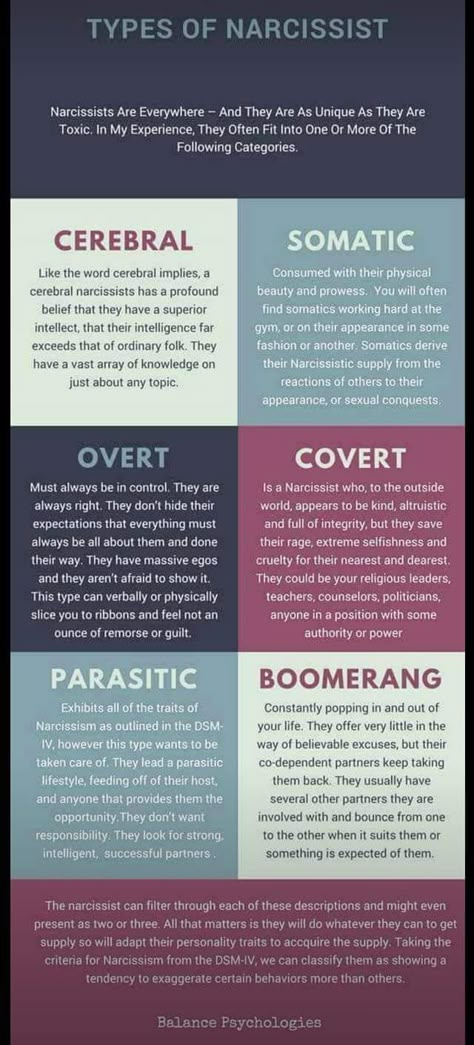 Of course, in addition to parents, the environment is also important for gaining such experience - brothers and sisters, friends, and other relatives.
Of course, in addition to parents, the environment is also important for gaining such experience - brothers and sisters, friends, and other relatives.
| In order not to fall into the network of a narcissist , it is worth remembering a few rules by which he communicates with his victims. The main thing is that narcissists do not tend to invest a lot and for a long time in a relationship. Therefore, the connection with them arises almost instantly. If there is a feeling that a person replaces the rest of the world, then this is also a reason to stop and think. It is worth talking about a special emotional closeness with a person at least after two weeks of acquaintance. If we feel like we're "bang!" and on the same wavelength, it’s worth slowing down the development of relationships and not laying out all the details of your life to a new acquaintance. |
Photo: Mikhail Perikov, nsknews. info
info
- What should alert?
- As a rule, such people choose as a victim those who can give something - money, sex, career help, or even household issues. First, it should be alert when the feeling arises very quickly that no one understands you as well as this person. When relationships develop in an extremely short time.
Secondly, if there are no conflicts at all, and the partners are so united and understand each other well, as if that very mythical soul mate literally met, this is an occasion to stop and think about who is in front of me.
You can provoke a person a little. For example, to offer an unexpected situation in which an ordinary person will not react too joyfully. For example, suggest playing a sport that a person has not done before. An ordinary person may agree, but at the same time express his fears or displeasure. The manipulator will agree and say: come on, I have always dreamed about it, we are one with you.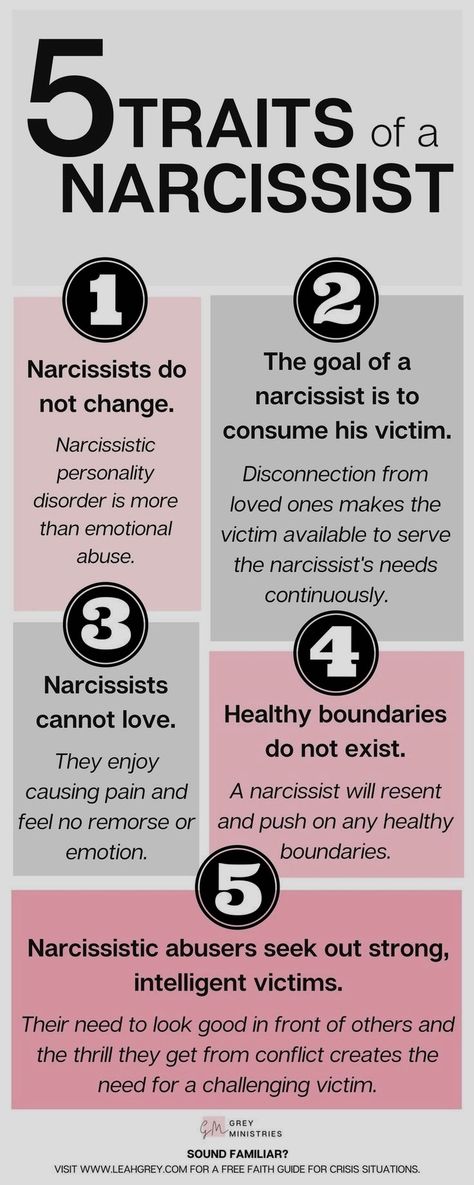
Thirdly, hypertrophied support at the beginning of a relationship and an emphasis on unity, merging. “We are we together. I understand you very well, I can almost read your thoughts” — this is the erasing of the personal boundaries of the victim.
And finally, it should be alarming that such a person has a “retinue” of many admirers of different sexes who listen to his opinion.
— How to explain why a person who does not need money always owes someone a hundred or two? He is always in someone's debt. What for?
- As a rule, people with a narcissistic disorder make good money, and they need this mechanism in order to more strongly involve the other person in emotional dependence.
Again, when we lend to such a person, we raise our self-esteem. Next to him, we feel our uniqueness and exclusivity - he is so competent and charming, but he chose us, it's cool.
But this is about something else - about the fact that we provide for his needs, improve his life, increase his self-esteem at the expense of our resources, including emotional ones.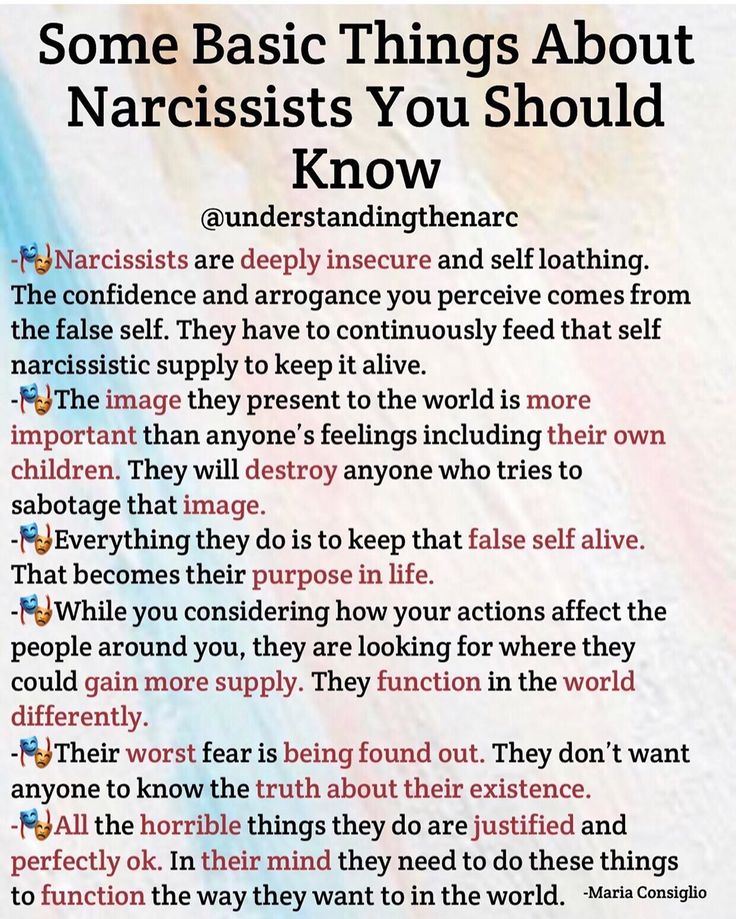
Photo: Maria Kozlova, nsknews.info
- Among psychologists, there are those who are of the opinion that the victim is "the fool herself" that she got into a dependent relationship. This raises a logical question - so who is to blame?
- It's nobody's fault. There have always been such people. But when the society was more traditional, then people around knew about people who were inclined to use others and not give anything in return. They said about such people that they were dishonest and tried to stay away from them.
Now we live in cities, and there is less emotional closeness between people. Therefore, it is much easier for such a person to find his retinue and his victims.
— Is there a danger that emotional coldness is contagious, that the victims will never be the same again?
- It is not always so. If the affected person retains a close circle - family, friends, past relationships where it was different, then such a person will be able to differentiate the environment into a safe one, where he will demonstrate his good human qualities, and everything else.
But to return to a close circle with such a traumatized person, other people will have to spend a lot of time and their mental strength. This is necessary for the emotional recovery of the victim of the manipulator.
— Can narcissists themselves change, become more humane?
— From my professional experience and observations, people with pronounced narcissism have changed and become more human, warmer and more responsive after very serious emotional or physical trauma.
For example, the death of a loved one or a severe personal tragedy, for example, an accident, as a result of which a person becomes disabled when the familiar world collapses. I have had such examples. It should be borne in mind that such transformations are possible in isolated cases.
The main news of your city - subscribe to our Vkontakte group.
The material was first published on the Novosibirsk News website on February 22, 2017.


